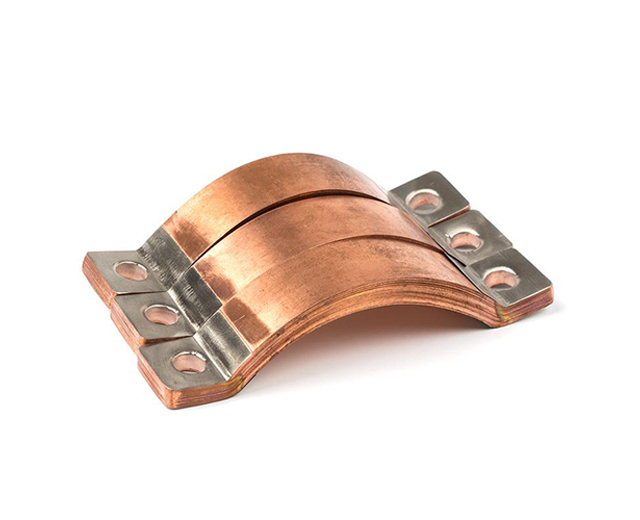2025-09-18 17:14:36
A tinned copper bus bar is a type of Copper Busbar that has a thin layer of tin coating applied to its surface. This combination of high-conductivity copper and corrosion-resistant tin makes it ideal for electrical distribution systems, battery packs, and industrial applications. By improving durability and solderability, a Tinned Copper Busbar provides a reliable solution for high-current applications where performance and longevity are critical.

Electrical current distribution: A tinned copper bus bar serves as a central conductor, collecting current from multiple sources and distributing it efficiently to various circuits or modules.
Corrosion resistance: The tin layer protects the copper base from oxidation, ensuring long-term reliability in harsh environments.
Mechanical stability: Like standard copper busbar, a Tinned Copper Busbar offers excellent mechanical strength to withstand vibration and stress.
Improved soldering and connection: Tin coating enhances solderability and ensures better electrical connections when using a copper connector busbar.
Compact layout: Bus bars simplify wiring and reduce clutter compared to multiple individual wires.
Copper provides superior electrical conductivity, low resistance, and excellent thermal performance. It is the foundation of a tinned copper bus bar, ensuring efficient current flow and minimal energy loss.
The tin coating prevents corrosion and oxidation, particularly in humid, marine, or outdoor environments. This coating also improves the bus bar's ability to form secure soldered or bolted connections.
For applications requiring movement or vibration absorption, a Flexible Busbar made from laminated copper or braided layers can be tinned to combine flexibility with corrosion protection. Flexible busbar copper is commonly used in battery packs or EV modules where thermal cycling or mechanical stress occurs.
Durability: Resistant to corrosion and oxidation, increasing lifespan compared to bare copper.
Reliability: Stable electrical performance even in harsh conditions.
Ease of installation: Tin coating improves soldering and mechanical fastening, making assembly faster and more reliable.
Versatility: Can be used in Battery Bus Bar, industrial panels, or renewable energy systems.
Compatibility: Works well with copper connector busbar components for modular assembly.
Tinned copper bus bars are widely used in multiple industries:
Battery Systems: In EVs, UPS systems, and renewable energy storage, battery Bus Bar Designs use tinned copper to safely connect cells and modules.
Industrial Switchgear: For power distribution in factories and commercial buildings.
Control Panels: Ensures clean and reliable electrical routing in sensitive equipment.
Marine and Outdoor Equipment: The tin coating provides corrosion resistance in saltwater or humid conditions.
Flexible Connections: Flexible busbar sections in tinned copper are ideal for applications where vibration or thermal expansion occurs.
Sizing: Select the bus bar cross-section based on the maximum current load.
Mounting: Secure with insulated supports and use proper torque specifications for connectors.
Cleaning: Keep tinned surfaces free from contaminants before soldering or bolting.
Inspection: Regularly check for signs of wear or corrosion, even though tin coating reduces oxidation risks.
Connections: Use compatible copper connector busbar parts to ensure reliable electrical and mechanical contact.
A tinned copper bus bar is a high-performance, corrosion-resistant solution for modern electrical systems. By combining the conductivity of copper with the protective properties of tin, a Copper Tinned Busbar or Tinned Copper Busbar ensures reliable power distribution, long service life, and ease of installation. Whether used as a battery bus bar, in industrial switchgear, or with flexible busbar copper connections, it remains an essential component for safe, efficient, and durable electrical systems.